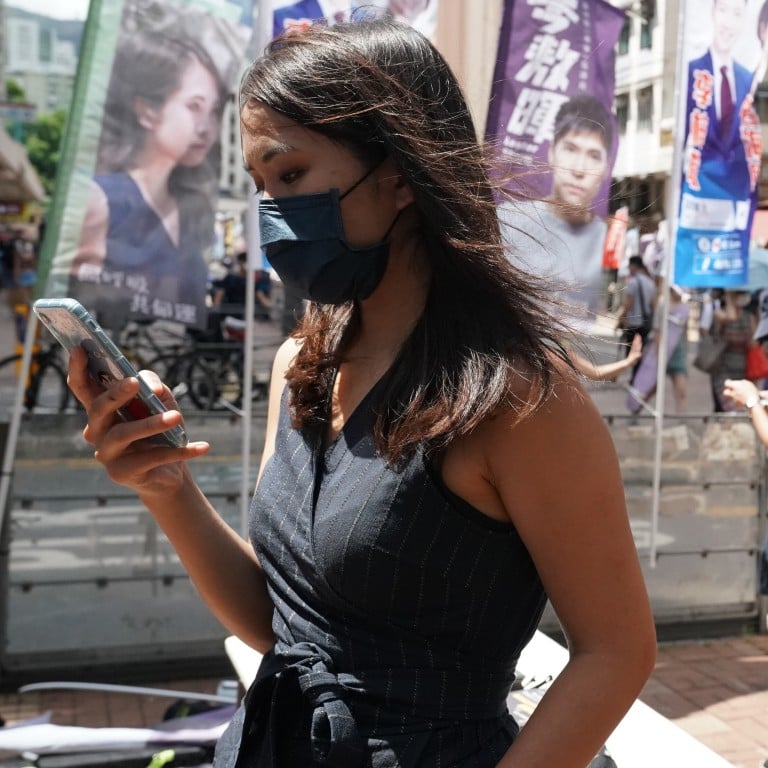
Hong Kong elections: mass disqualification of opposition hopefuls sparks political storm
- The group includes such well-known names as Alvin Yeung, Joshua Wong, Dennis Kwok and Gwyneth Ho
- Government warns more nominations could yet be invalidated, saying there is ‘no question of any political censorship’ or restriction of freedom of speech
Citing the city’s new national security law and the pan-democrats’ previous calls for foreign governments to sanction Beijing and Hong Kong as key reasons, election officials on Thursday invalidated the candidacies of four incumbent lawmakers – the Civic Party’s Alvin Yeung Ngok-kiu, Dennis Kwok and Kwok Ka-ki, along with that of accountancy sector lawmaker Kenneth Leung.
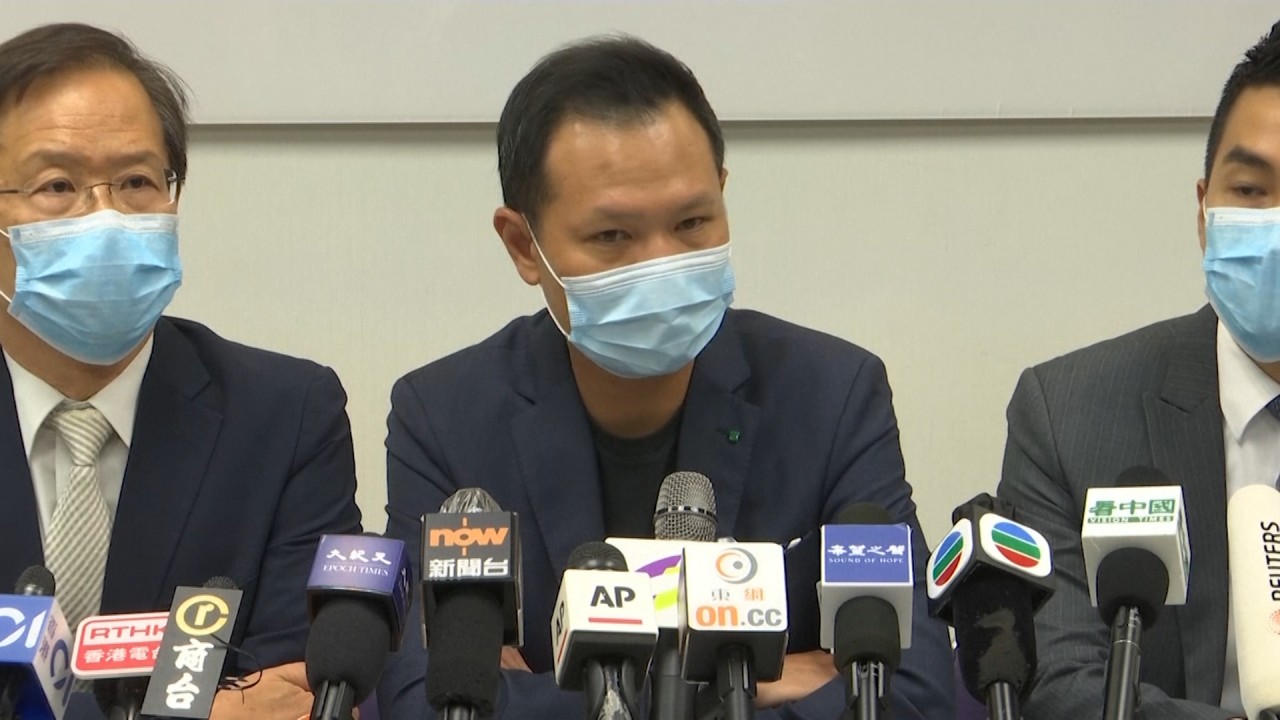
01:21
12 Legislative Council hopefuls including Joshua Wong banned from running
The returning officers cited similar reasons, as well as the opposition hopefuls’ pledge to vote down the government’s budget and other proposals should it win its first-ever legislative majority, in barring activists Joshua Wong, Ventus Lau Wing-hong, Gwyneth Ho Kwai-lam and Alvin Cheng Kam-mun as well as district councillors Cheng Tat-hung, Lester Shum, Tiffany Yuen Ka-wai and Fergus Leung Fong-wai.
Those hopefuls cannot be genuinely upholding the Basic Law as they tried to paralyse the government and subvert state power
The latest political storm was unleashed even as sources said the government was likely to cite the Covid-19 pandemic in postponing the Legco polls, scheduled for September 6, by an entire year, and request China’s top legislative body to issue a legal directive resolving any outstanding constitutional issues.
At least 21 other opposition hopefuls were still waiting for returning officers’ verdicts on their candidacy applications. With the nomination period closing on Friday, it remained unclear whether they, including six Democratic Party lawmakers and Joshua Wong’s nine allies from the “resistance bloc”, would be disqualified as well.
“Returning officers are still reviewing the validity of other nominations according to the law. We do not rule out the possibility that more nominations would be invalidated,” the government said in a statement.
“The decisions of returning officers aim to ensure that the election is held in strict accordance with the Basic Law and other applicable laws in an open, honest and fair manner,” the statement said. “There is no question of any political censorship, restriction of the freedom of speech or deprivation of the right to stand for elections as alleged by some members of the community.”
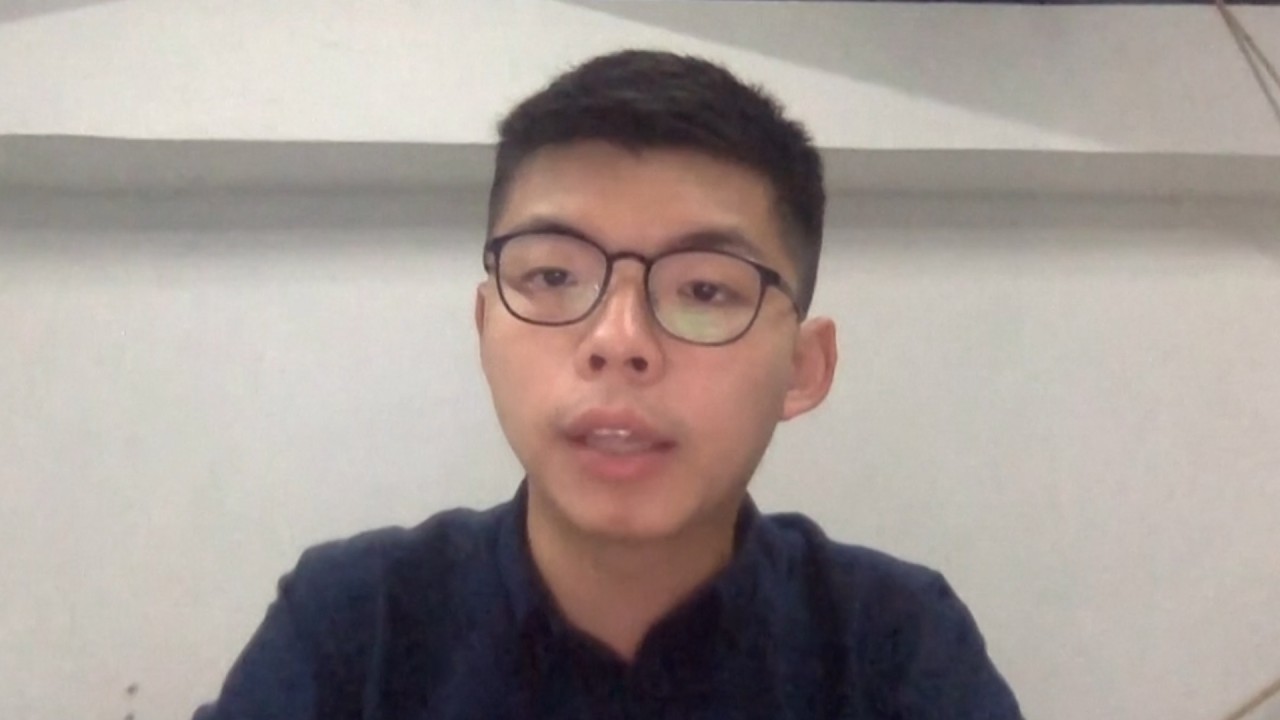
01:31
Joshua Wong reacts to his disqualification from running in upcoming Hong Kong elections
Beijing’s liaison office in Hong Kong also issued a statement declaring that the returning officers’ decisions were “well-reasoned and lawful”.
“Those hopefuls cannot be genuinely upholding the Basic Law as they tried to paralyse the government and subvert state power,” a spokesman said.
Citing the late Chinese paramount leader Deng Xiaoping, the spokesman said the bottom line of “Hong Kong people governing Hong Kong” was that “patriots form the main body of administrators”.
It is obviously now illegal to believe in democracy ... This is the sort of behaviour that you would expect in a police state
But the disqualified hopefuls and their supporters cried foul, complaining that they were being shut out of the elections because they intended to win a majority of more than 35 seats in Legco.
They had been banking on riding the current wave of anti-government sentiment to further victory, following their landslide win over their pro-establishment rivals at the municipal-level district council elections last November.
Civic Party chairman Alan Leong Kah-kit said the disqualifications marked the end of the “one country, two systems” policy under which Hong Kong had been promised a high degree of autonomy.
Party leader Alvin Yeung said Beijing’s “suppression” would only strengthen their resolve to fight on.
“We’ve earned the trust and mandate of the people in the primary election,” he said, referring to the unofficial polls organised by the opposition camp earlier this month.
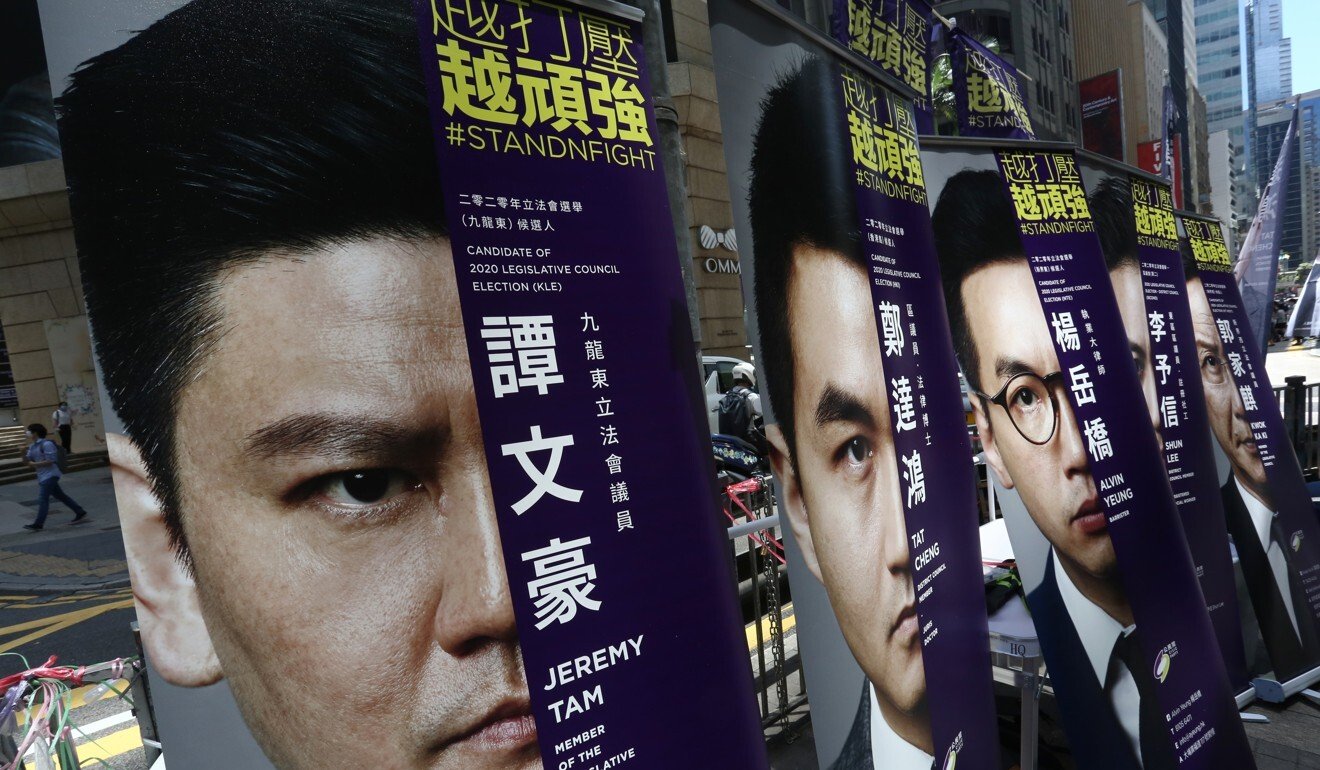
Joshua Wong also vowed not to give up, adding: “Clearly, Beijing shows a total disregard for the will of the Hongkongers, tramples upon the city’s last pillar of vanishing autonomy and attempts to keep Hong Kong’s legislature under its firm grip.”
The city’s last colonial governor, Chris Patten, accused Beijing of carrying out “an outrageous political purge” of pro-democracy parties.
“It is obviously now illegal to believe in democracy ... This is the sort of behaviour that you would expect in a police state,” he said.
Explainer: What does it mean to be disqualified from Hong Kong elections and who decides?
In invalidating the candidacy of Civic Party lawmakers Alvin Yeung, Kwok Ka-ki and Dennis Kwok, their returning officers cited a joint letter sent by them, along with their colleagues Jeremy Tam Man-ho and Tanya Chan, to US senators last September calling for sanctions.
Although they had promised they would not call for sanctions in the future, the returning officers ruled that they had committed acts of soliciting or providing support to foreign interference.
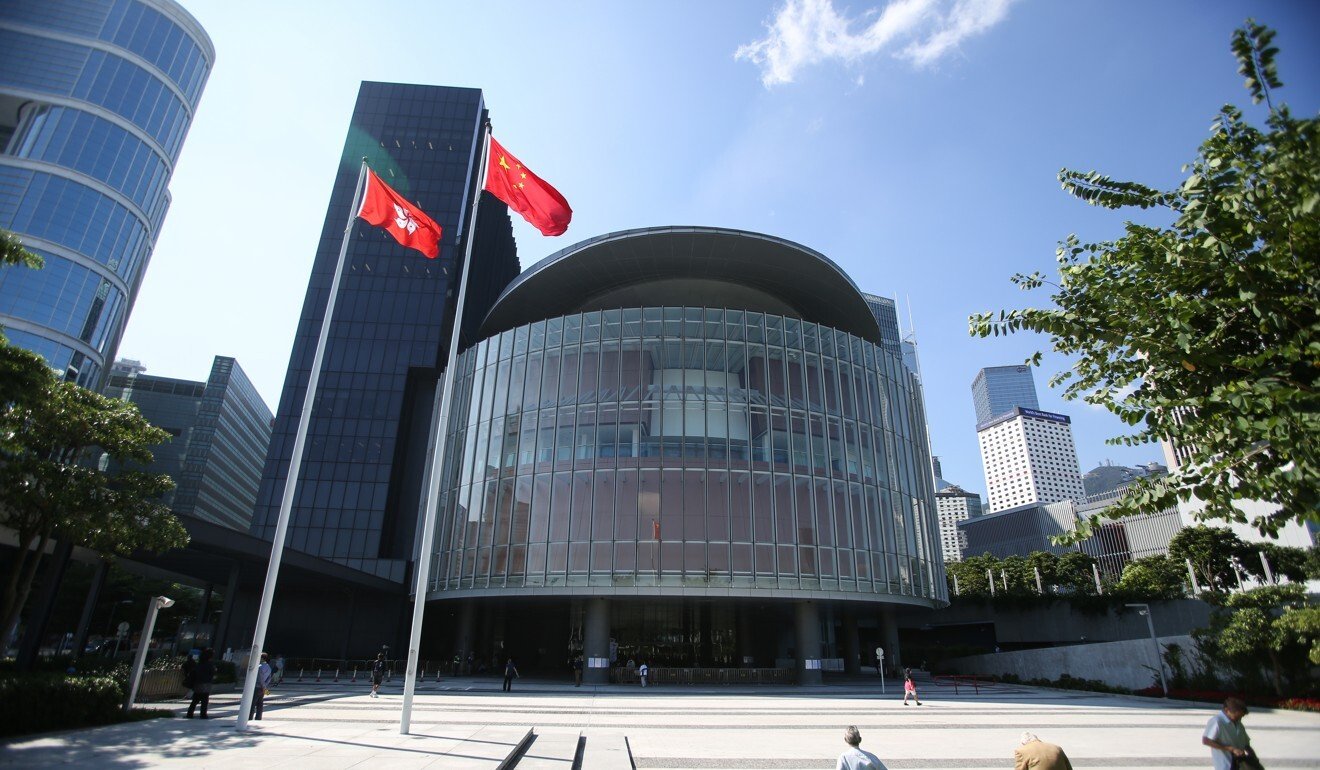
In her letter to Yeung, returning official Amy Yeung Wai-sum said: “The candidate’s suggestion … is fundamentally repugnant to the constitutional order of Hong Kong under the overriding principle of ‘one country, two systems’ as clearly stated in the Basic Law.”
In disqualifying Cheng Tat-hung, returning officer Steve Wong Chi-wah noted that the district councillor was not involved in writing the joint letter, but insisted “it can objectively be presumed” that Cheng’s stance was the same as that of other Civic Party members.
Wong also ruled that Cheng’s objection to the national security law demonstrated that he did not “embrace, promote and support the fundamental principle of ‘one country, two systems’, and therefore objectively cannot have the intention to uphold the Basic Law”.
Hong Kong elections: will polls be postponed by a year with legal backing from mainland China?
In the case of legal sector lawmaker Kwok, official Benjamin Mok Kwan-yu cited the party’s press release in March about its election strategy in ruling he had “no real intention to perform his role and duties faithfully as a Legco member in a way to properly invoke the powers and authorities vested in a member”.
“Therefore, I consider that the candidate plainly cannot have the genuine intention to support and promote the Basic Law and pledge allegiance to Hong Kong,” Mok concluded.
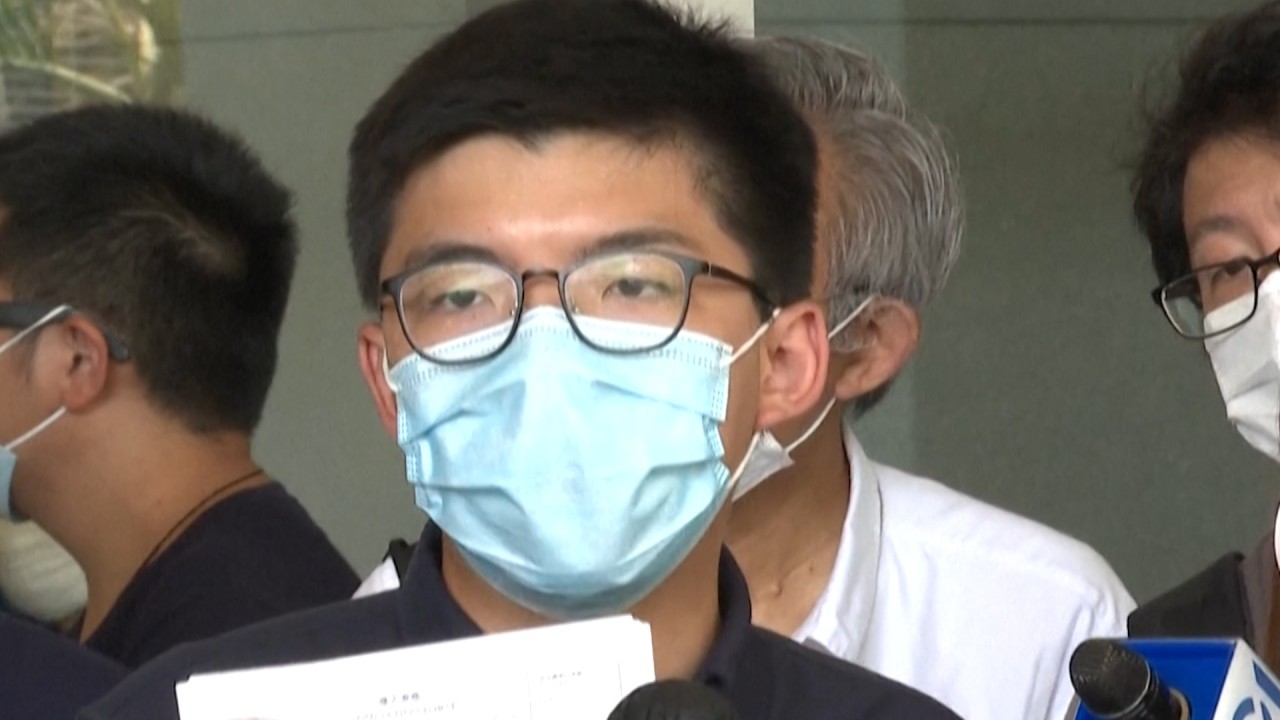
01:03
Joshua Wong announces run for Hong Kong legislature: ‘We choose not to kowtow to China’
It was a similar story for Joshua Wong, who was previously barred from running in the district council polls. Returning officer Alice Choi cited previous statements issued by Wong’s party, the now-defunct Demosisto, and previous remarks that the activist made.
Choi maintained that Wong planned to continue to solicit interference by foreign governments in the affairs of the city and central government, and pursue the objective of “democratic self-determination”, which she characterised as his disbanded party’s “cardinal objective”.
Wong on Monday had pledged to stop lobbying the United States or other countries to impose sanctions on Hong Kong.
Hong Kong elections: will Legislative Council polls be postponed, and who stands to gain?
Choi also said Wong had expressed an objection in principle to the enactment of the national security law, and intended to abuse the proper function of lawmakers by forcing the government to accede to certain demands after securing a majority in Legco.
“The checks and balances built into the Basic Law are not designed to allow such abuse of constitutional functions with a view to paralysing the government,” Choi wrote.
In her ruling letter to Gwyneth Ho, returning official Amy Yeung rejected the activist’s claim that she was not against the national security law in principle.

Pro-establishment lawmaker Alice Mak Mei-kuen said she still believed that the elections would remain fair, despite the mass disqualifications.
“The returning officers must not be making political considerations in allowing people who called for sanctions to run,” she said.
Chinese University political scientist Ma Ngok also said he had no doubt that Beijing was behind it all.
“Needless to say, the elections won’t be fair any more because many voters simply have no choice … The standard for candidates has become much stricter than two years ago,” he said, referring to the previous disqualification of candidates over their advocacy for the city’s “self-determination”.



